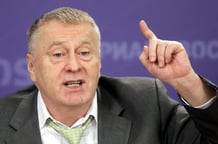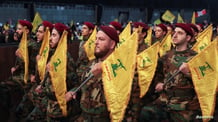
Hundreds of supporters of political forces and factions objecting to the results of the parliamentary elections in Iraq, Tuesday evening, tried to storm one of the gates of the “Green Zone” in the center of the capital, Baghdad, according to eyewitnesses.
The highly fortified “Green Zone” includes government headquarters, foreign missions, and the homes of senior state officials, including Prime Minister Mustafa Al-Kazemi, who was exposed on Sunday morning to a failed assassination attempt by drones.
Eyewitnesses told The Eastern Herald that hundreds of protesters camped in central Baghdad headed towards one of the gates of the “Green Zone” near the headquarters of the Ministry of Interior.
They added that the demonstrators tried to reach the gate to storm it, but the “Popular Mobilization Security” forces stood in the way of their access to it, to avoid clashes with the security forces stationed at the gate, as happened last Friday.
On Friday, Baghdad witnessed confrontations between security forces and demonstrators against the preliminary results of the parliamentary elections, which resulted in 125 injuries, including 27 security personnel, according to the Ministry of Health, while a medical source reported the death of a protester.
Two days later, the authorities announced that Al-Kazemi had survived an assassination attempt, through an attack by three drones rigged with explosives, two of which were shot down, while the third exploded in his residence, injuring a number of his guards.
The attack was widely condemned at the local and international levels and raised fears of an outbreak of internal fighting in Iraq.
For a while, the country has been witnessing political tensions, with political forces and armed Shiite factions close to Iran rejecting the preliminary results of the early parliamentary elections, which were held on October 10, last October, saying that they were “fabricated” and demanding that all votes be recounted manually.
The “Sadr bloc”, affiliated with Shiite leader Muqtada al-Sadr, topped the results with 73 seats out of 329, while the “Progress” bloc, led by the dissolved Parliament Speaker Muhammad al-Halbousi (Sunni), won 38 seats.
In third place, the State of Law bloc led by former Prime Minister Nuri al-Maliki (2006-2014) came with 34 seats.
While the “Al-Fateh” alliance, a political umbrella for Shiite factions close to Iran, is the main loser, with only 16 seats, after it came second with 48 seats in the 2018 elections.











